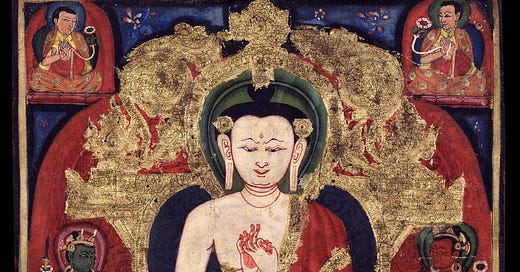three wrongs will not make one right
tying together Zadie Smith’s 'The Fraud' and the American healthcare system
Zadie Smith’s newest novel, The Fraud, is a piece of historical fiction that could not have been better timed or named. The last decade of American, and possibly global, life has felt like the unmasking of fraudulence; fraudulent histories, institutions, wars, and heroes. The business of exposing fraud funds our quest for truth.
What makes The Fraud so compelling to me is it is the fictionalization of a historical incident, the Tichborne case, which was itself public theater, often swapping truths for falsehoods and vice versa. The major news story of our day, be it the murder of a CEO or escalating global conflict, also feels like public theater. There are heroes and villains, high emotions, and narrative arcs, but I have to ask— as emotionally truthful as it all is— should the news be entertainment?
The Tichborne case takes place in England during the Victorian Era and captures public fascination from the 1860s to the 1870s. Arthur Orton, a working class man from Australia, claims to be the long-lost Roger Tichborne, heir to the Tichborne fortune. While Orton, who bears no resemblance to or qualities of Tichborne, is obviously a fraud, he wins the hearts and minds of the working poor. He, but more what he represents, becomes a rallying point and the public shows up in droves to watch and support his court case.
Smith weaves this case with left-wing populism in Victorian England, the English exploitation of the Caribbean, and the tendencies among England’s artistic upper class to romanticize the suffering poor. The once famous novelist William Ainsworth appropriates the infamous thief and prison escapee Jack Sheppard, Ainsworth’s cousin Eliza Touchet lusts after the story of Andrew Bogle, a Black man and former slave from Jamaica who is testifying on behalf of Arthur Orton, and even the holy Charles Dickens is not safe, as the story serves up a cocktail of his opportunism, voyeurism, and brilliance. At every turn The Fraud is asking who is true, who is false, what is right, what is wrong.
Through her writing Smith insinuates that systems of evil are sustained by the moderate many, not the evil few. In The Fraud the sugar supply chain is the evil. In our modern world it could very well be the cobalt supply chain or a healthcare system.
Layer by layer Smith’s work of fiction turns the world on its head. It is impossible not to see the parallels between the injustices of Victorian society and those of modern American life, to compare English colonialism in the Carribbean with the plight of Black slaves in America, and to consider how class is reinforcing itself here in the United States just as it did in 1800s England.
There is a reason gloom and doom rhyme. As I have asked in other essays, in which direction are we headed? If we do not learn to speak the language of love and act from motivations of empathy, our imaginations will fade away into that oblivion we call violence and death.
moving beyond heroes
Just as I had little interest in Arthur Orton, the man in The Fraud who is the fraud, I have little interest in Luigi Mangione, the United Healthcare shooter. The central character is not nearly as important as what they symbolize. In The Fraud the presence of Orton forces the country to discuss what it does not want to discuss; its colonies and the poor. Mangione has similarly forced a conversation— when there is no just way to be heard, what is a desperate person to do? If the same public that, only weeks ago, voted for right-wing populism is uniting around left-wing populism, is it time to build new institutions?
Killing people is not the way we’re going to reform our health care system. That is abhorrent and immoral. The way we’re going to reform our health care system is having people come together, says Bernie Sanders in an interview with Jacobin magazine.
Vengeance is not justice, whispers Toni Morrison.




I will have to check that book out now! Ironically that book got so caught up on Zadie Smith discourse that I barely heard about the book itself, and from this perspective it sounds fascinating